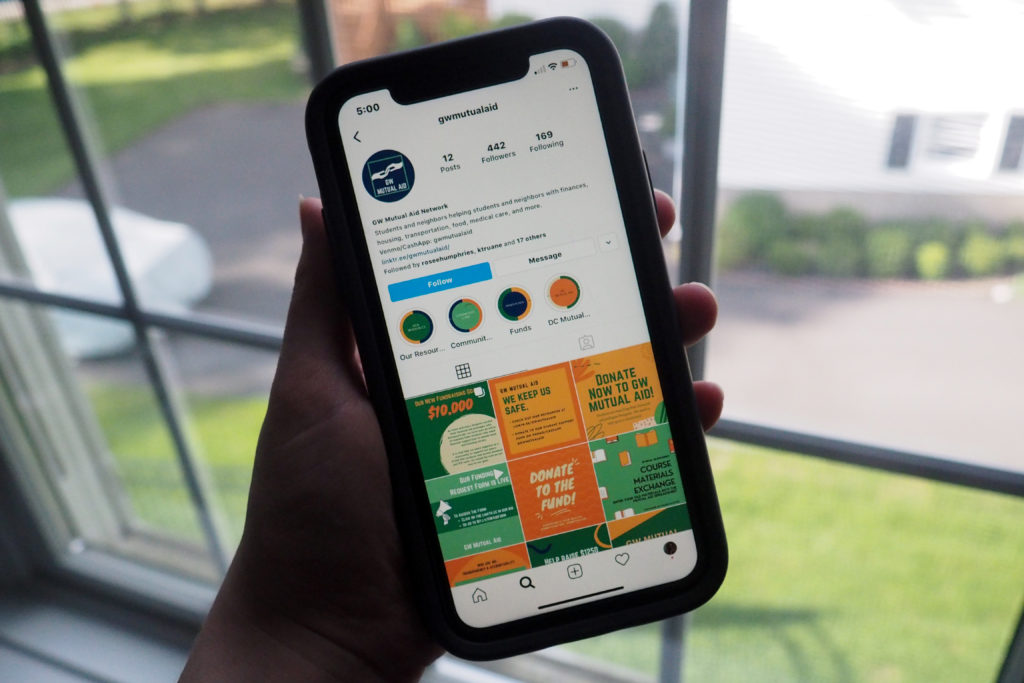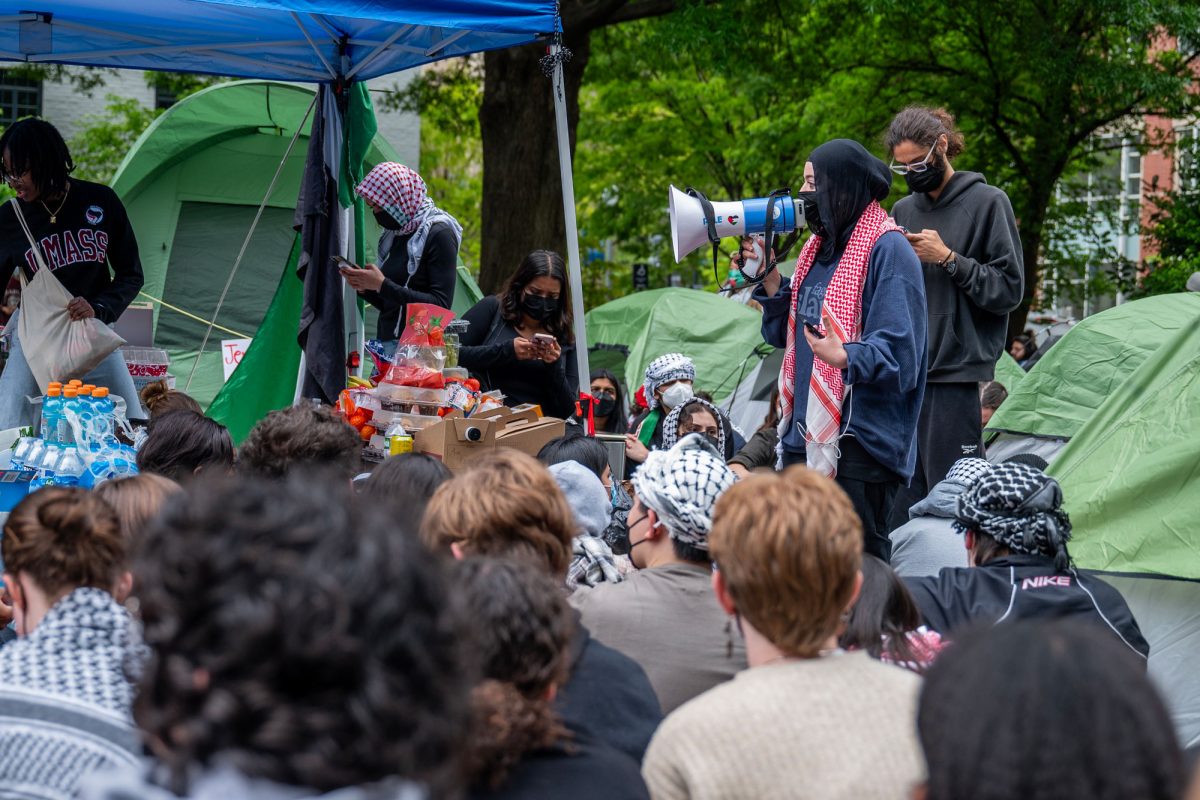About a dozen students are banding together to provide resources and financial support to peer impacted by the COVID-19 pandemic.
Then-Student Association Executive Vice President Amy Martin and Yannik Omictin, then-SA vice president for governmental relations, launched the GW Mutual Aid Network, a student-led collective that works to connect students with the means to stay afloat during the pandemic. The collective will maintain a spreadsheet created in the spring where students can share resources for housing, transportation or school supplies, and members are raising money for a student emergency fund.
“With everything that we’ve been seeing over the last few months, I think that everyone can agree that it’s time to prioritize the community,” Martin said. “It’s time to prioritize the collective, and it’s time to recognize the role that we all have to play in that in terms of things like wealth redistribution.”
The network is gathering money for a student donation-reliant emergency fund that has surpassed its initial goal of $1,250. Students seeking financial assistance can fill out an emergency aid request form asking them to list their contact information and reason for receiving aid.
Martin said the original spreadsheet launched in the spring had been set aside once students moved off campus, but it was relaunched last month as students reconfigured their housing plans and finances in preparation for a remote semester. She said she and Omictin decided to form the collective, which operates independently from the University, rather than a student organization because they did not want to appoint a president and create an executive board.
“We support all the ideas that people are coming forward with, and we encourage people to go after them and run,” Martin said. “We’re an unaffiliated group of students, we’re not a student org, and so, therefore, we have a little bit more freedom to act more as a collective and as a coalition than anything else.”
Martin said the network has grown to more than 10 student volunteers helping with fundraising and brainstorming new ideas for support, like providing online wellness exercises and alumni career panels. She said student volunteers also work privately with students requesting aid to facilitate donations.
The mutual aid spreadsheet originally contained tabs for students to list details like storage, transportation, donations and their contact information. New to the spreadsheet is a page listing a mutual aid microgrant fund the group will oversee and fundraise for from students directly.
Martin said the fund has relied on student and community donations via Venmo and CashApp, and the group’s members are prioritizing students that are housing and food insecure before fulfilling additional student requests, like course materials costs.
“We’re not the first, we won’t be the last to do this, but the idea of wealth redistribution is also not a new idea,” Martin said. “It’s the idea that if you have extra to give, and somebody else is in need, why not do so? And especially in a country where the economic divide and the wealth divide are so large in an unnecessary manner? How do we reconcile that within our own community?”
Omictin, a senior majoring in geography and political science, said the mutual aid network is “critical” for students facing stressors, like loss of employment and housing. He said students who have lived financially well-off have a responsibility to ensure their wealth is being used to assist their peers.
“It’s not some kind of abstract idea, taking care of one another’s almost as simple as adding your name to a spreadsheet saying, ‘Hey, I can let someone crash on my couch for a few days,’ ‘I can drive over to storage and get your stuff if you need me to,’ ‘I can help out, monetarily, if you need me to,’” Omictin said. “Essentially meeting needs in a deeply personal way, and I think that’s a deeply political statement.”
He said the fund is designed to meet housing and food needs and general living expenses including medical care.
Omictin said the group is also intending to expand the support they offer during the remote semester to include programming, like wellness and mental health events and political education about collectivism. He said he wants those involved to feel they are part of a strong campus community and to understand how their work is “distinctly” different from the “overwhelmingly capitalist” idea of charity by emphasizing collective mutual aid.
“We know we’re very fragile as a community,” Omictin said. “And so we know we need that automatic safety valve to be there. And so we intend to maintain that.”
Metaxenia Evangeloulis, a sophomore majoring in psychology and statistics, said she first heard about the network through Instagram and listed her textbooks on the mutual aid spreadsheet for students to request. She said the network allows students to connect with each other and help with whatever supplies they have to give away, whether that be money or extra textbooks.
“Textbooks are kind of unreasonably priced and especially now that we’re working remotely, it’s probably harder for kids to access textbooks because you can’t really get a physical one that you read from the library,” Evangeloulis said. “So I just wanted to help if anyone needed it.”







